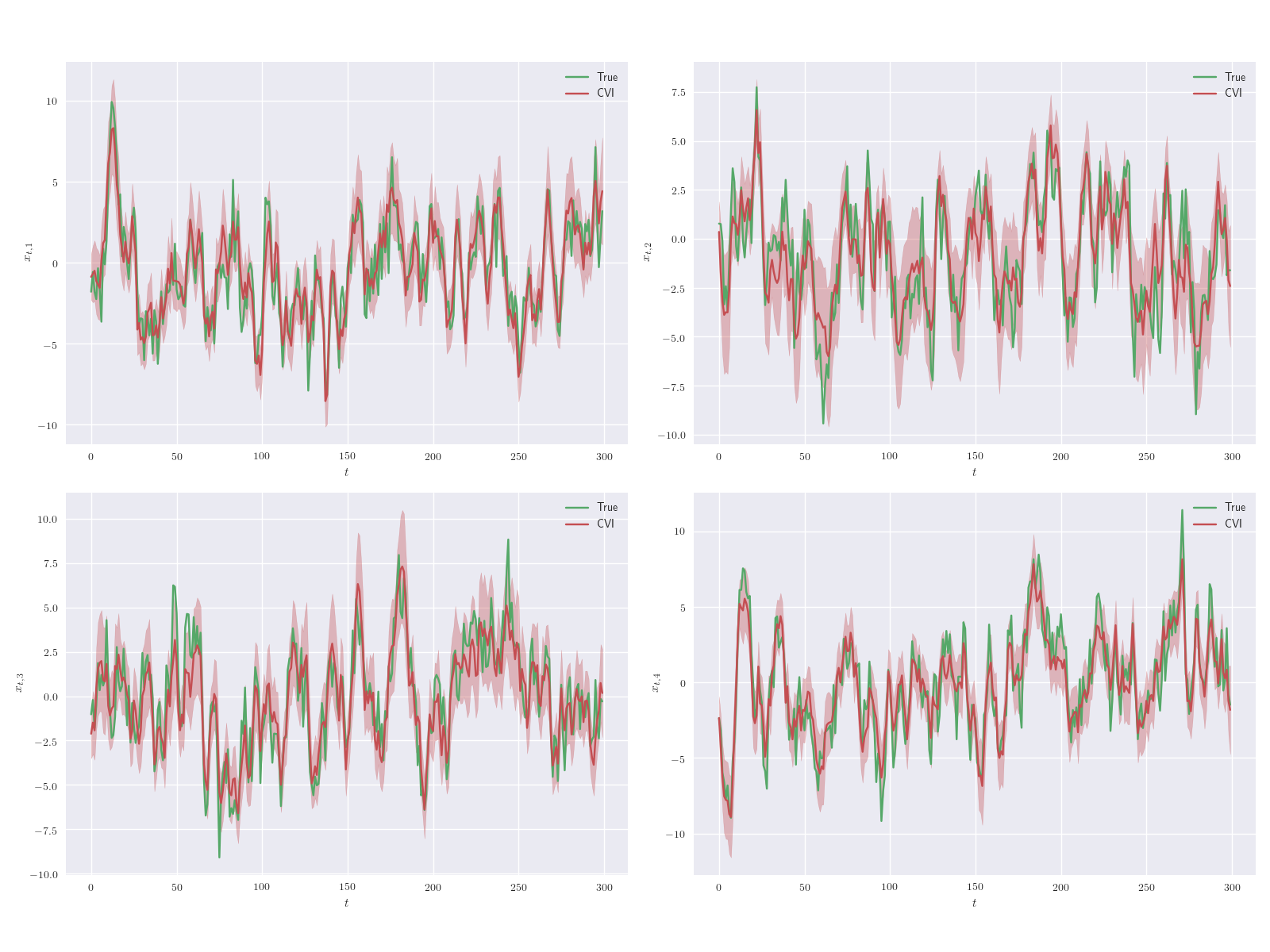Conjugate-Computation Variational Inference : Converting Variational Inference in Non-Conjugate Models to Inferences in Conjugate Models
Variational inference is computationally challenging in models that contain both conjugate and non-conjugate terms. Methods specifically designed for conjugate models, even though computationally efficient, find it difficult to deal with non-conjugate terms. On the other hand, stochastic-gradient methods can handle the non-conjugate terms but they usually ignore the conjugate structure of the model which might result in slow convergence. In this paper, we propose a new algorithm called Conjugate-computation Variational Inference (CVI) which brings the best of the two worlds together -- it uses conjugate computations for the conjugate terms and employs stochastic gradients for the rest. We derive this algorithm by using a stochastic mirror-descent method in the mean-parameter space, and then expressing each gradient step as a variational inference in a conjugate model. We demonstrate our algorithm's applicability to a large class of models and establish its convergence. Our experimental results show that our method converges much faster than the methods that ignore the conjugate structure of the model.
PDF Abstract
